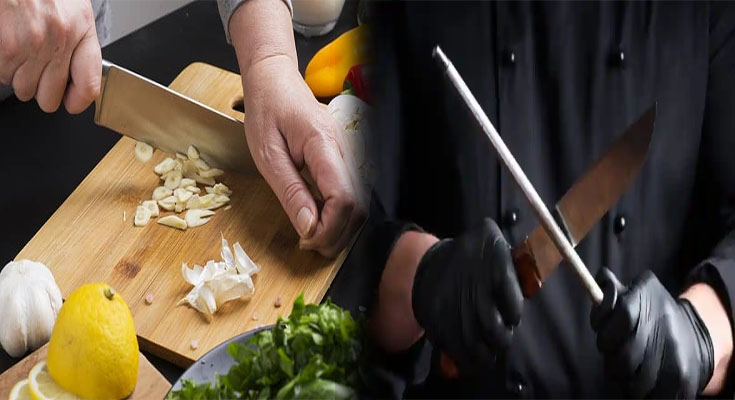In the world of culinary arts, one of the fundamental skills that sets apart a novice cook from a seasoned chef is mastering knife skills and precision. A chef’s ability to handle a knife with finesse and precision is essential for efficient preparation of ingredients and creating visually stunning dishes. In this article, we will explore the importance of knife skills and the techniques to help you master this essential culinary art.
The Significance of Knife Skills
Knife skills are the backbone of every kitchen. They not only impact the efficiency of food preparation but also determine the presentation and overall quality of a dish. Here are a few reasons why mastering knife skills is crucial:
- Efficiency: Proper knife skills allow you to work quickly and efficiently, saving time while cutting ingredients accurately. This is especially important in professional kitchens, where time is of utmost importance.
- Consistency: Precise knife skills ensure consistent cuts, resulting in even cooking and a balanced combination of flavors. Uniformly cut ingredients cook at the same rate, resulting in a harmonious dish.
- Aesthetics: Well-executed knife skills can turn an ordinary dish into a work of art. Consistent, visually appealing cuts enhance the overall presentation, making the dish more appetizing.
- Safety: A proper grip and the right technique significantly reduce the risk of accidents. Learning the correct way to handle a knife helps prevent injuries and ensures a safe kitchen environment.
Techniques for Mastering Knife Skills
- Choosing the Right Knife: Different knives are designed for specific tasks. Invest in essential knives like a chef’s knife, paring knife, and serrated knife. Each knife has its purpose, allowing you to achieve precise cuts.
- Grip and Posture: Hold the knife with a firm grip using your thumb and index finger on the blade’s opposite sides while curling the remaining fingers around the handle. Maintain a relaxed posture with a slightly bent elbow, allowing controlled movements.
- Knife Control: Practice controlling the movement of the knife by using a rocking motion or keeping the tip of the blade in contact with the cutting board while slicing. This provides uniformity and helps maintain control over the thickness of the cuts.
- Knife Sharpening: Keep your knives sharp for precise cutting. Learn how to sharpen your knives properly using a sharpening stone or honing steel. A sharp knife reduces the effort needed and reduces the chances of accidental slips.
- Knife Techniques: Master essential techniques like chopping, dicing, slicing, julienning, and mincing. Each technique requires specific hand placements and cutting motions. Focus on these techniques and practice regularly to improve your skills.
- Ingredient Handling: Properly handle ingredients while cutting. Learn how to stabilize ingredients like vegetables by using the “claw grip” technique with your non-cutting hand. This keeps your fingers safe while offering better control over the ingredient while slicing.
- Safety First: Always prioritize safety in the kitchen. Pay attention to the placement of your non-cutting hand, avoid distractions, and remember to keep your knives properly stored when not in use.
Practice Makes Perfect
Like any other skill, mastering knife skills requires practice and dedication. Begin by honing basic cutting techniques and gradually move on to more advanced ones. Start with simple recipes and gradually challenge yourself with more complex ingredients and intricate cuts.
Remember, precision and speed go hand in hand when it comes to knife skills. Practice regularly, build muscle memory, and watch your culinary artistry reach new heights. The art of handling knives is not only essential for professional chefs but also a rewarding skill for any home cook aspiring to elevate their culinary creations. So, embrace the beauty of knife skills, unleash your creativity, and embark on a journey towards becoming a master of precision in the culinary world.

